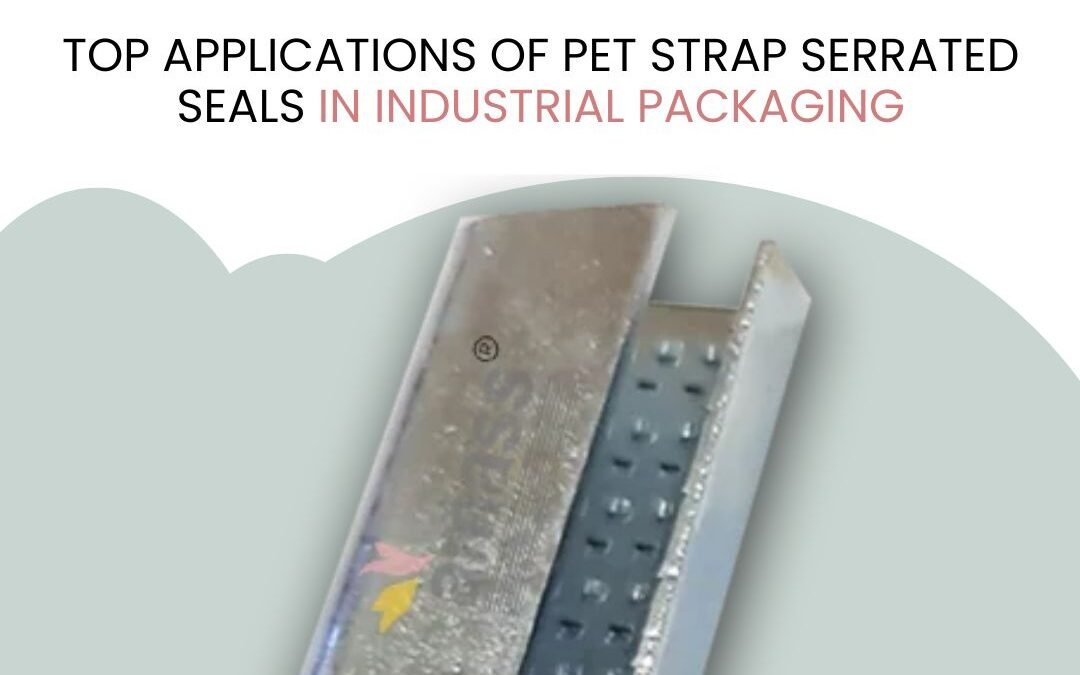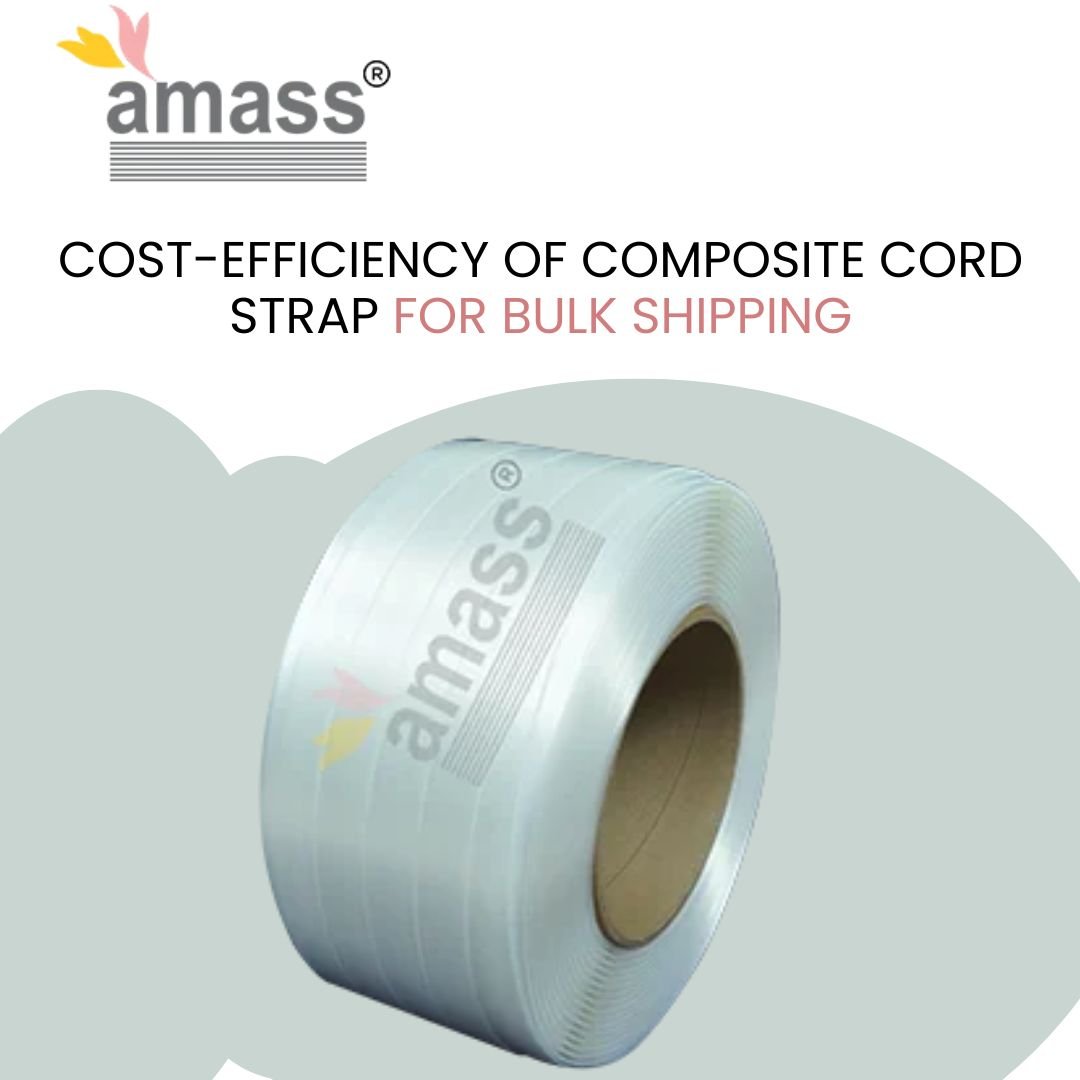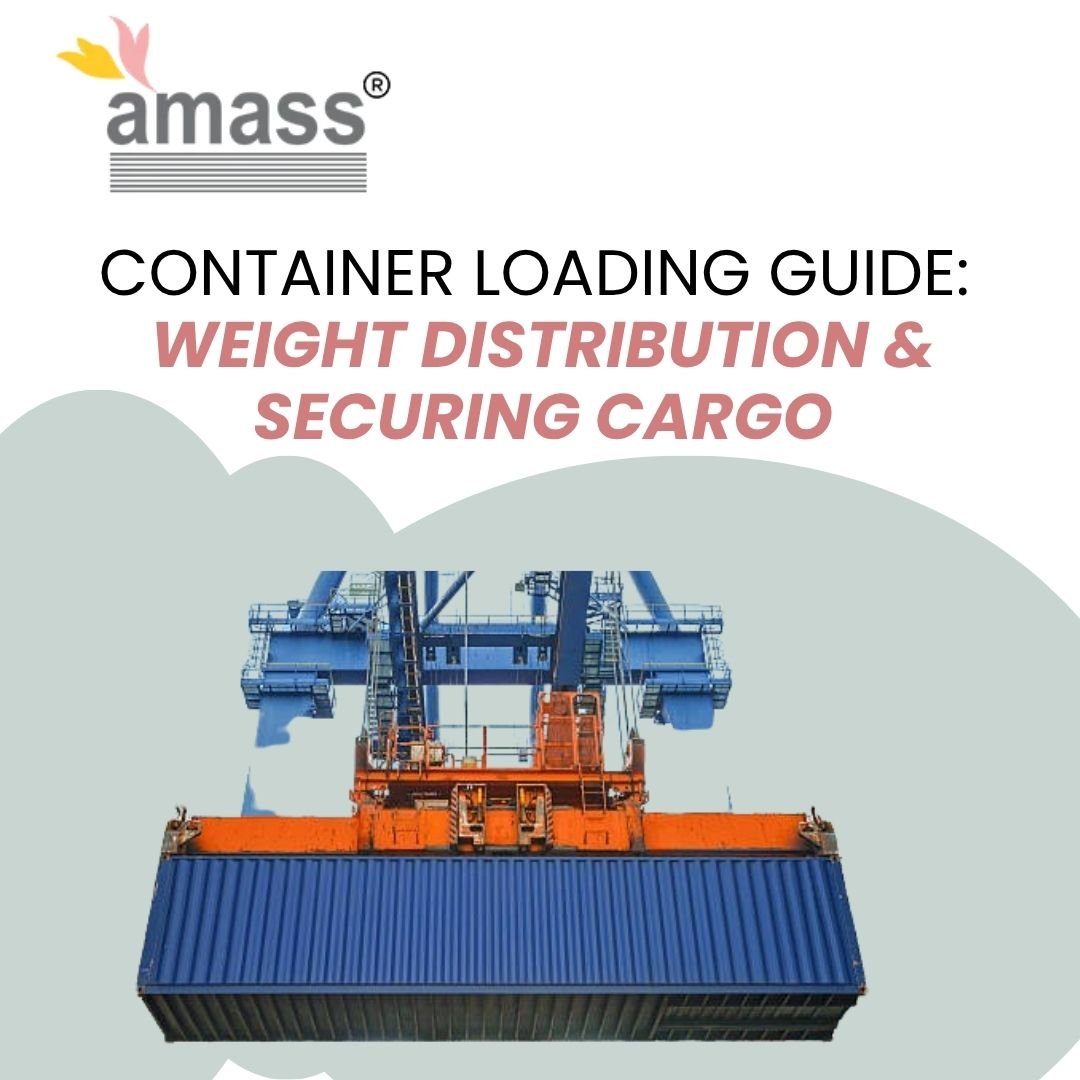Top Applications of PET Strap Serrated Seals in Industrial Packaging

PET Strap Serrated Seals vs Smooth Seals: Which Is Better for Your Packaging?
October 16, 2025
Understanding the Mechanics of PET Strap Serrated Seals
October 18, 2025Industrial packaging operations lose millions annually when seals fail and loads shift during transport, causing product damage and safety incidents. Serrated seals solve this problem by gripping smooth PET strapping surfaces with interior teeth that prevent slippage under high tension, vibration, and temperature fluctuations. The global PET strapping market reached USD 825.93 million in 2024 and grows at 6.63% annually as industries adopt polyester alternatives to steel for secure, cost-effective load bundling.
This article identifies where serrated seals deliver maximum value across industrial sectors, explains why specific applications demand serrated grip technology, and details how different industries leverage these seals to secure loads ranging from construction materials to consumer electronics.
Heavy-Duty Construction Materials
Construction sites and building material suppliers use serrated seals for bundling steel rods, pipes, bricks, concrete blocks, and heavy timber loads. PET strapping with 5.1-7.5mm thickness commands 35% revenue share due to optimal balance between load resistance and cost efficiency for medium to heavy bundling. Serrated seals rated for 700-1,100 kg breaking strength handle the weight and vibration these materials experience during truck and rail transport.
Steel coils and metal fabrications require strapping systems that won’t rust or damage product surfaces. Serrated PET seals maintain grip through temperature extremes at outdoor storage yards where steel seals would corrode. The teeth penetrate the strap surface to create mechanical locks that hold tension even when loads settle during multi-day transit.
Construction material bundling represents a major application segment because irregular shapes like pipe bundles and rebar stacks need flexible strapping that conforms to load contours. Serrated seals paired with PET straps absorb shock from forklift handling and crane lifting without loosening.
Palletized Goods and Warehouse Logistics
Warehouse operations securing palletized goods account for 29% of strapping materials market share, making it the largest application segment. Serrated seals stabilize wrapped pallets containing machinery parts, automotive components, and industrial equipment for road, rail, and ocean freight. The seals’ ability to maintain consistent tension prevents load shifting that causes pallet instability in stacked configurations.
Logistics providers value serrated seals’ reliability during multi-stop deliveries where pallets experience repeated loading and unloading. The mechanical grip withstands vibration from truck suspensions and sudden stops without gradual loosening that smooth seals exhibit on glossy PET surfaces. Heavy-duty galvanized steel construction provides 52-62 Rockwell hardness for repeated crimping without seal deformation.
Automated strapping systems in distribution centers use serrated seals compatible with off-set sealers and single-feed combination tools. The standardized seal dimensions match automated equipment specifications for high-volume operations processing hundreds of pallets per shift. PET strapping’s 6% lower weight compared to equivalent-strength steel reduces freight costs across millions of annual shipments.
Export and Maritime Shipping
International trade drives 20% of PET strapping demand in the food and beverage sector alone, with similar shares across other export-intensive industries. Maritime shipping requires seals that resist saltwater corrosion, maintain strength through tropical heat and arctic cold, and hold tension during weeks-long ocean voyages. Galvanized steel serrated seals meet these demands where smooth seals would allow critical slippage from constant vessel motion.
Container lashing applications secure crates, bundled timber, ceramic tiles, and glass sheets for multi-modal transport through trucks, trains, and ships. The serrated grip prevents load shifting during rough seas when containers experience vertical and horizontal forces simultaneously. UV-resistant PET strapping paired with corrosion-resistant serrated seals handles outdoor storage at ports without material degradation.
Export packaging must meet destination country standards for cargo securement while surviving handling at multiple transfer points. Serrated seals’ mechanical interlock provides higher joint efficiency compared to friction-dependent alternatives, ensuring loads remain secure through international supply chains.
Food and Beverage Sector
The food and beverage industry holds 20% revenue share in PET strapping applications, driven by need for safe, stable transportation of packaged consumables. Serrated seals secure palletized bottles, canned goods, packaged foods, and beverage cases where hygiene standards prohibit contamination from packaging materials. PET strapping’s resistance to moisture, UV exposure, and chemical degradation makes it ideal for food-grade applications.
Lightweight PET straps with serrated seals provide high tensile strength without damaging corrugated packaging or product surfaces. The combination prevents strap marking on boxes while maintaining sufficient grip to stabilize mixed-weight pallets common in grocery distribution. Bottling plants and food processing facilities use automated strapping lines where serrated seals ensure consistent joint strength across thousands of daily applications.
Temperature-controlled logistics for perishable goods demand seals that function from freezer conditions to ambient warehouse temperatures. Serrated grip technology maintains joint integrity through these thermal cycles where smooth seals might loosen from strap dimensional changes.
Consumer Electronics and High-Value Goods
Electronics manufacturers and distributors secure fragile, high-value products on pallets using serrated seals that prevent load shifting without excessive pressure. Computer components, appliances, and consumer electronics require damage-free strapping that won’t mark packaging or transfer impact forces to products. PET strapping’s shock absorption paired with precisely crimped serrated seals distributes tension evenly across irregular pallet surfaces.
E-commerce growth drives 15.22% annual expansion in plastic strapping demand as online retail requires reliable secondary packaging. Serrated seals ensure electronics shipments arrive undamaged despite rough handling in parcel delivery networks. The seals’ galvanized finish prevents rust stains on white-box consumer packaging where appearance matters for retail presentation.
Mixed-SKU pallets containing products with varying weights benefit from serrated seals’ ability to maintain consistent tension across the entire load. This prevents heavier items from settling and loosening the strapping during warehouse storage or long-distance shipping.
Textile and Paper Industries
Textile manufacturers bundle fabric rolls, carpet bundles, and garment packages using serrated seals that won’t snag or stain materials during storage and shipping. The smooth exterior PET strap surface combined with serrated seal grip provides non-marking security for appearance-sensitive products. Paper mills and printing operations secure reams, rolls, and bundled paper products where moisture resistance prevents strapping degradation in humid environments.
The textile industry’s need for secure yet gentle bundling makes PET strapping with serrated seals preferable to steel that can damage fabrics. Wood and paper sectors represent significant application areas where PET strapping’s 6.5% annual growth outpaces traditional materials. Serrated seals’ mechanical grip ensures bundles maintain integrity through regional distribution and export shipping.
Chemical and Industrial Drum Bundling
Chemical processors bundle drums, containers, and industrial packaging using serrated seals resistant to chemical exposure that would corrode steel alternatives. PET strapping maintains strength when exposed to industrial environments containing acids, bases, and solvents. The serrated seal’s galvanized finish provides additional corrosion protection for applications involving chemical splashes or vapor exposure.
Heavy industrial applications including metal processing, ceramics, and cotton spinning use PET strapping for securing loads ranging from 250 kg to over 1,000 kg. Serrated seals rated for these load classes must withstand not just initial tension but sustained stress during extended storage periods. The mechanical bite prevents creep and loosening that would occur with smooth seals on glossy PET surfaces under constant load.
Specialty Applications and Custom Solutions
Irregularly Shaped Loads
Manufacturers dealing with awkward geometries—furniture components, piping assemblies, bundled conduits—rely on PET strapping’s flexibility and serrated seals’ secure grip. The combination conforms to non-standard load shapes while maintaining tension through handling and transport.
Ceramic and Fragile Products
Ceramic tile producers and glass manufacturers use PET strapping with serrated seals to prevent edge damage from excessive pressure. The strap’s elasticity absorbs vibration while serrated seals maintain just enough tension to stabilize loads without crushing delicate materials.
Tobacco and Agricultural Products
Agricultural packaging for tobacco, cotton, and processed farm products benefits from PET strapping’s weather resistance and serrated seals’ ability to maintain tension as organic materials cure and settle. The non-rusting properties prove essential for products stored in humid conditions before processing.
FAQs
Q: What breaking strength do serrated seals provide for PET strapping?
A: Serrated seals typically achieve 100-120 kg slip resistance when properly crimped onto PET strapping, with heavy-duty variants supporting loads up to 1,100 kg depending on strap width and thickness. The seal represents the weakest point in the strapping system, so matching seal strength to strap rating ensures maximum joint efficiency.
Q: Which industries use serrated PET seals most heavily?
A: Construction materials, logistics and warehousing, food and beverages, and export packaging represent the largest application segments. The PET strapping market reaches USD 825.93 million in 2024, with food and beverage accounting for 20% of usage and logistics operations commanding 29% of overall strapping materials demand.
Q: Can serrated seals be reused across multiple shipments?
A: Serrated seals are single-use fasteners designed for one-time crimping. The crimping process deforms the seal permanently to create the mechanical grip, making reuse impossible without compromising joint strength. However, the galvanized finish prevents corrosion during storage before use.
Q: What seal thickness works best for heavy-duty applications?
A: Standard serrated seals measure 0.8-0.9mm thick with hardness ratings of 52-62 Rockwell B for general industrial use. Heavy-duty construction and export applications may require thicker gauges up to 1.0mm for enhanced grip strength on loads exceeding 500 kg. Always match seal specifications to strap width and expected load weight.
Q: How do serrated seals compare to heat or friction seals?
A: Heat welds achieve 55% minimum break strength of base strap, friction welds reach 65%, while properly applied serrated seals can approach 80% when used with appropriate crimping tools. Serrated seals work best for manual and semi-automatic operations where heat sealing equipment isn’t practical.
Conclusion
Serrated seals secure glossy PET strapping across applications from 250 kg construction bundles to fragile electronics pallets, with the global market reaching USD 825.93 million in 2024. The mechanical grip technology prevents the slippage failures that smooth seals create on polyester surfaces, supporting 6.63% annual growth as industries adopt PET alternatives to steel strapping. Key sectors including logistics (29% market share), food and beverage (20%), and export packaging rely on serrated seals for reliable joint strength through multi-modal transport and extended storage.
Request seal specifications matched to your strapping width and load requirements.
Amass Strap manufactures precision serrated seals engineered for PET strapping applications across all industrial sectors detailed above. Our seal range includes 12mm through 32mm widths with galvanized finishes rated 52-62 Rockwell B hardness, designed for compatibility with off-set sealers and combination strapping tools. We supply seals in standard 1,000-piece cartons for high-volume operations, with custom thickness options from 0.8mm to 1.0mm for heavy-duty applications requiring enhanced grip strength. Technical specifications document slip resistance ratings and load capacity for each seal size paired with corresponding PET strap widths.
Visit amass-strap.com for detailed strap and seal info, sample requests, and expert tips to tighten up your sealing process and keep every load locked down.




